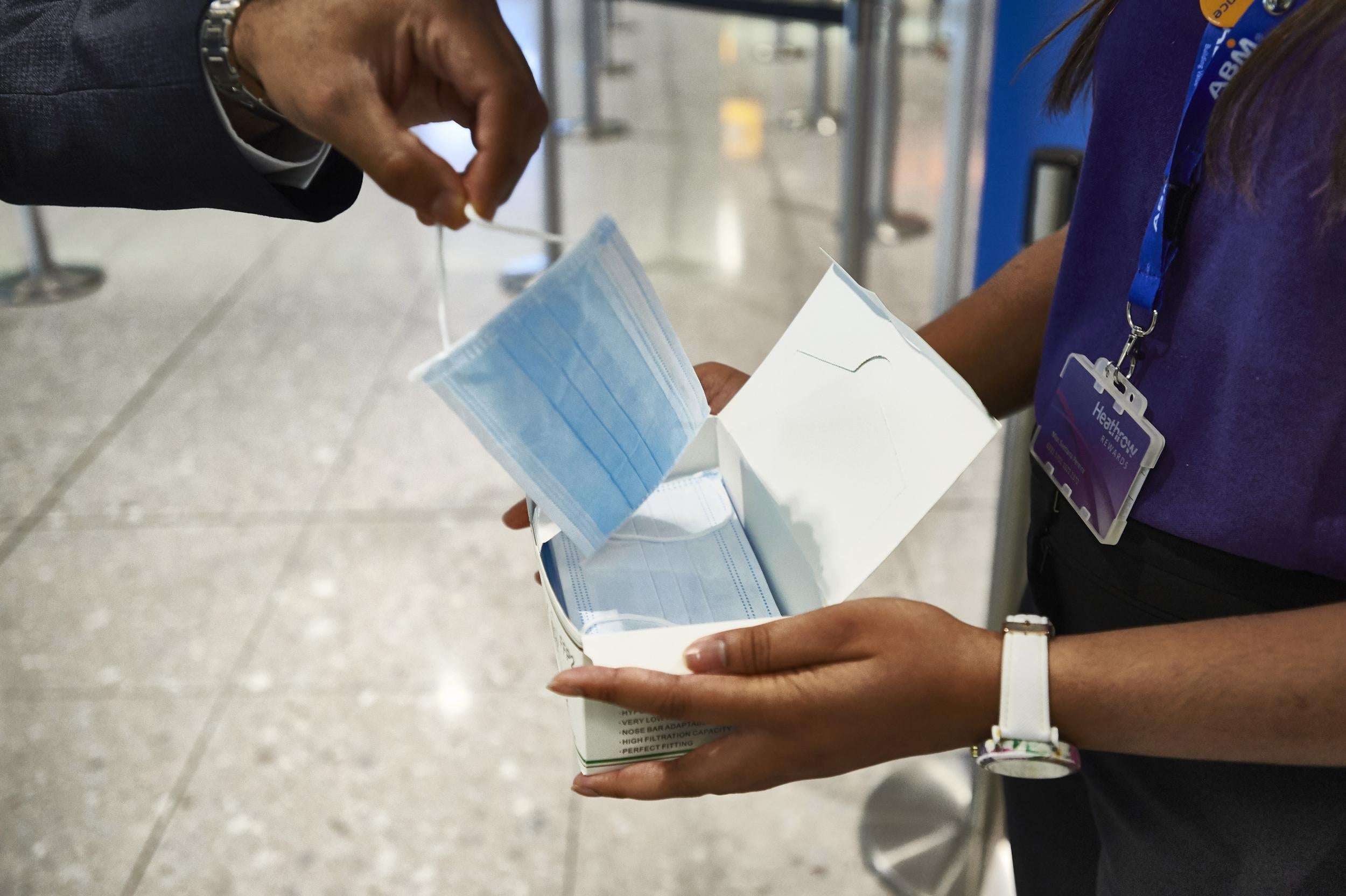Quarantine: travel firms say 14-day self-isolation will be relaxed by 29 June
Foreign Office advice against non-essential travel must also change to allow foreign holidays to start

Your support helps us to tell the story
From reproductive rights to climate change to Big Tech, The Independent is on the ground when the story is developing. Whether it's investigating the financials of Elon Musk's pro-Trump PAC or producing our latest documentary, 'The A Word', which shines a light on the American women fighting for reproductive rights, we know how important it is to parse out the facts from the messaging.
At such a critical moment in US history, we need reporters on the ground. Your donation allows us to keep sending journalists to speak to both sides of the story.
The Independent is trusted by Americans across the entire political spectrum. And unlike many other quality news outlets, we choose not to lock Americans out of our reporting and analysis with paywalls. We believe quality journalism should be available to everyone, paid for by those who can afford it.
Your support makes all the difference.A group of more than 500 travel businesses has received “private assurances from senior government sources” that the quarantine law, imposed on Monday, will be relaxed by the end of June.
The policy was introduced by the home secretary, Priti Patel. Almost all arrivals at UK airports, ferry ports and international rail terminals are obliged to self-isolate at home for two weeks.
Ms Patel said: “These measures are informed by science, backed by the public and will keep us all safe.”
While the measures have initially been imposed for a year, the government has said they will be reviewed every three weeks. The first review date is 29 June.
The effect has been to stifle inbound and outbound tourism for the summer. The three big airlines serving the UK – British Airways, easyJet and Ryanair – have launched a legal challenge.
They say the travel industry was not properly consulted and that the self-isolation measures are far more harsh than those applying to known carriers of Covid-19 already in the UK.
A group called Quash Quarantine, which includes outbound travel businesses and UK hospitality enterprises from Kuoni to TGI Fridays, has also been threatening legal action to overturn the measures.
But Paul Charles, the group’s spokesperson, said: “The Quash Quarantine group has received private assurances from senior government sources that travel corridors will be in place from 29 June.”
The concept of “travel corridors” or “air bridges” are seen by the Department for Transport (DfT) as the best way to limit the damage that quarantine is causing to the UK travel industry.
They are treaties of convenience between the UK and key destination countries, agreeing that there would be no quarantine applied in either direction. Travel corridors would allow the government to maintain a pretence of quarantine while nullifying it for the vast majority of travellers.
The quarantine law, which was initiated by the the prime minister’s chief adviser, Dominic Cummings, has been championed by Priti Patel and the foreign secretary, Dominic Raab.
The measure has been characterised by briefings and counter-briefings – the latter mainly from the DfT because of the severe economic impact.
Within hours of quarantine being introduced, Jet2 and Virgin Holidays cancelled all departures in the first half of July.
The new rules are academic for most travellers at present because the Foreign Office (FCO) has advised against all-but-essential travel abroad for the past 12 weeks.
But the reasons given by the FCO for imposing the ban – flight restrictions and border closures – are rapidly disappearing in Europe and other parts of the world, and there are indications that this blanket travel advice may be lifted.
Mr Charles said: “We urge the government to signal to the travel industry publicly and urgently that this is the case, as well as amend Foreign Office advice on non-essential travel.
“We are still considering our options regarding legal action, including whether to join BA’s claim or launch our own action, but would prefer that 29 June is confirmed as soon as possible for the start of travel corridors.
“The industry needs urgent visibility on a timetable for travel to begin again.”
A government spokesperson said: “It’s important to remember what these measures are all about: protecting public health, avoiding a second peak of this deadly virus, and that means managing the risk of cases being imported from abroad.
“We are exploring a range of options to increase travel, underpinned by the evidence if it shows it is safe, including examining how international travel corridors could safely open up routes.”
Join our commenting forum
Join thought-provoking conversations, follow other Independent readers and see their replies
Comments